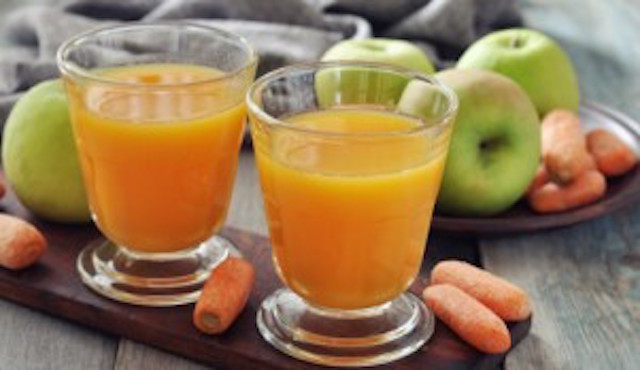According to Mayo Clinic, “A stroke occurs when the blood supply to part of your brain is interrupted or severely reduced, depriving brain tissue of oxygen and food. Within minutes, brain cells begin to die.”
A stroke is a medical emergency, and you must seek medical care immediately upon the occurrence of a stroke.
The good news is that with the right diet and lifestyle, strokes can be prevented. May is National Stroke Awareness Month, we wanted to share a healthy recipe for you.
This stroke prevention juice is packed with organic foods that lower cholesterol and promote heart health, which can prevent strokes.
A Dutch study showed that eating apples may reduce risk of stroke.
They are an excellent source of beta-carotene, which according to the journal Neuroepidemiology is associated with a reduced risk of stroke.
A study published in Natural Medicine Journal shows that celery extract helps lower blood pressure. High blood pressure, or hypertension is considered a major risk factor for stroke.
Oranges: Research published by the American Stroke Association in their journal Stroke shows that flavonoids found in citrus fruits and juices like oranges may be associated with a reduced risk of stroke.
Stroke prevention juice:
Process the following ingredients in a juicer:
2 apples
3 carrots
2 stalks of celery
2 oranges
Optional: We like adding 1/2 cup filtered water
Make sure ingredients are organic and the water is filtered.
Enjoy!
Note: None of the information in our website is intended to diagnose, treat, cure or prevent any illness or disease. The content on our website is for educational purposes only.
For how apples may reduce risk of stroke.
Chocolate may reduce risk of stroke.
For a stroke prevention smoothie.
REFERENCES:
1. “A Pilot Study to Evaluate the Antihypertensive Effect of a Celery Extract in Mild to Moderate Hypertensive Patients.” Natural Medicine Journal. Natural Medicine Journal, Apr. 2013. Web. 18 May 2014.
2. “Dietary Flavonoids and Risk of Stroke in Women.” Stroke. American Stroke Association, 23 Feb. 2012. Web. 18 May 2014.
3. “History of National Stroke Awareness Month.” National Stroke Association. National Stroke Association. Web. 18 May 2014.
4. “Stroke Definition.” Mayo Clinic. Mayo Foundation for Medical Education and Research. Web. 16 May 2014.
5. “Dietary Vitamin C, Beta-carotene and 30-year Risk of Stroke: Results from the Western Electric Study.” National Center for Biotechnology Information. Neuroepidemiology, 1997. Web. 18 May 2014.

















